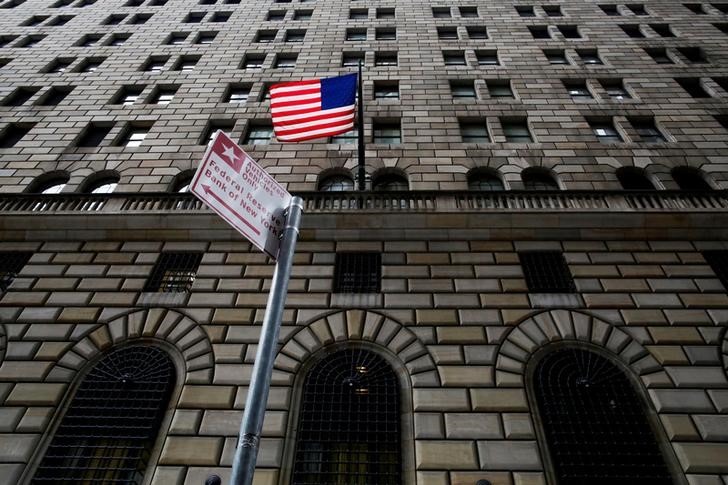(Reuters) - U.S. consumers showed greater appetite for loans this year - driven by stronger demand for mortgages amid lower rates - and they had an easier time accessing credit when compared to a year earlier, a survey from the New York Federal Reserve showed on Monday.
Applications for credit rose slightly this year compared to 2018, and rejection rates declined, according to the New York Fed’s Survey of Consumer Expectations Credit Access Survey. Applications for any kind of credit rose to 45.8% on average in 2019 from 45.5% in 2018. Rejection rates dropped to 17.6% in 2019 from 19.9% in 2018.
The greater demand for credit was driven by consumers seeking to take advantage of lower borrowing rates to buy homes. Mortgage loan application rates rose to 7.9% this year from 7.1% in 2018. That corresponded with a drop in mortgage rates, with the 30-year fixed rate mortgage dropping to 3.73% as of Dec. 13, 0.9 percentage point lower than the same time last year, according to Freddie Mac. Most of those home buyers had strong credit, with credit scores higher than 680.
Graphic: U.S. consumers show greater appetite for mortgages - https://fingfx.thomsonreuters.com/gfx/mkt/12/10042/9953/mortgage%20applications%20ny%20fed.jpg
In contrast, applications for mortgage refinancing loans declined slightly to 8.0% this year from 8.3% in 2018. Auto loan application rates also dropped to 12.6% this year from 15.5% last year.
Overall, consumers who applied for new credit this year had an easier time accessing those loans. Rejection rates declined for credit cards, mortgages and mortgage refinance applications, the survey found. The main exception was auto loans, which saw rejection rates rise to an average 7.1% in 2019 from 6.1% in 2018.
The New York Fed polls consumers about their credit expectations every four months and publishes one annual release summarizing trends from the past year.
The study also examines the financial fragility of U.S. households. The perceived probability of facing a sudden expense of $2,000 in the next month rose to 33.6% in 2019 from 32.9% in 2018. But consumers also felt more confident in their ability to afford such a bill, with 69.8% of consumers saying they would be able to come up with $2,000, up slightly from 68.6% in 2018.
